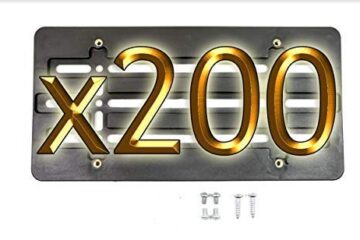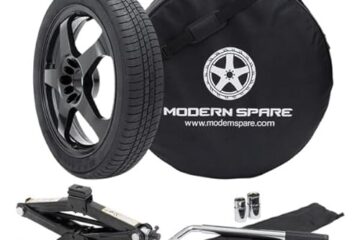Lock Up Torque Converter vs Non Lock Up
The main difference between a lock-up torque converter and a non lock-up torque converter is that a lockup torque converter provides a direct mechanical link between the engine and transmission, improving efficiency and reducing heat generated by the torque converter. A torque converter is a key component in an automatic transmission system.
Its primary function is to transfer engine power to the transmission and ultimately to the wheels. A lockup torque converter, as the name suggests, is one that can lock the engine and transmission output shafts together, creating a direct mechanical drive.
This eliminates the slip that is inherent with conventional torque converters, which in turn reduces heat and improves fuel economy. Non-lockup torque converters, by contrast, allow for some slippage between the engine and transmission. This can result in higher fuel consumption and increased heat generation. In this article, we’ll explore the advantages and disadvantages of lockup torque converters compared to non-lockup torque converters.
What Is A Torque Converter?
A torque converter is a key component of an automatic transmission. It is essentially a fluid coupling that transfers power from the engine to the transmission. The torque converter has three stages: the impeller stage, the turbine stage, and the stator stage.
In the impeller stage, the fluid is accelerated by the impeller and directed towards the turbine. In the turbine stage, the fluid drives the turbine, which in turn drives the transmission. In the stator stage, the stator redirects the fluid to increase the torque output of the torque converter.
The importance of the torque converter cannot be overstated, as it allows the engine to remain running while the vehicle is stopped, among other benefits. The torque converter is available in both lock up and non-lock up varieties, and the choice depends on the intended vehicle usage.
Understanding Lock Up Torque Converter
Lock up torque converter is an important part of your car’s transmission system. Its main function is to improve fuel efficiency and reduce engine wear. The lock up clutch disengages when the vehicle is cruising at a constant speed, creating a direct mechanical link between the engine and transmission.
This reduces the energy loss that occurs with non-lock up converters, which can result in higher fuel consumption and higher emissions. Additionally, a lock up torque converter also contributes to less heat buildup in the transmission system. However, there are also some disadvantages to lock up torque converters, such as the potential for transmission shudder, especially at low speeds.
A comparison of lock up and non-lock up torque converters can be helpful in determining which one is right for your vehicle, depending on your driving needs.
What Is Non Lock Up Torque Converter?
A non lock up torque converter refers to a type of automatic transmission with no torque multiplication when the vehicle is in gear. This means the engine is always connected to the transmission, even when the vehicle is not moving.
The converter is designed to slip and absorb shock when the engine is idling, which makes it easier to shift gears. Although non lock up converter is less efficient, it is simpler and more reliable. Its major advantage is that it can reduce the number of moving parts, which reduces manufacturing costs.
However, this type of torque converter leads to an increase in fuel consumption and generates more heat. Consequently, lock up torque converters are more suitable for high-performance vehicles, while non lock up are used for regular cars.
Key Differences Between Lock Up And Non Lock Up Torque Converters
Lock up and non-lock up torque converters have several key differences. Lock up converters have a mechanism that connects the impeller and the turbine during high-speed cruising conditions, increasing efficiency and reducing slippage. Non-lock up converters lack this mechanism, leading to greater rpm loss and reduced fuel efficiency.
Other differences include the design and size of the clutch, the way it engages, and how much heat is generated during operation. Lock up converters are better suited for high-speed cruising and towing, while non-lock up converters are preferable for vehicles that require greater torque for acceleration.
Ultimately, the choice between lock up and non-lock up torque converters depends on individual needs and vehicle requirements.
Frequently Asked Questions For Lock Up Torque Converter Vs Non Lock Up
What Is A Lock Up Torque Converter?
A lock up torque converter is a mechanism that locks the engine and transmission at cruising speed.
What Are The Benefits Of A Lock Up Torque Converter?
A lock-up torque converter can increase fuel efficiency, reduce transmission temperature, and improve overall vehicle performance.
What Are The Disadvantages Of A Non-Lock Up Torque Converter?
A non-lock-up torque converter can lead to decreased fuel efficiency, increased transmission temperature, and distorted shifting patterns.
Conclusion
As we have explored in this blog, the lock-up torque converter and non-lock-up torque converter each have their own benefits and drawbacks. As a driver, it is important to understand the differences between these two types of torque converters so that you can make an informed decision when choosing a vehicle.
Lock-up torque converters provide better fuel efficiency and are more suitable for highway driving, while non-lock-up torque converters provide better acceleration and are more suitable for city driving. Depending on your personal driving habits and needs, either option may be a viable choice for you.
Ultimately, it is important to prioritize your own preferences and needs when making a decision. By understanding the functions and differences between these two torque converters, you can make a well-informed decision and maximize the performance of your vehicle.





0 Comments